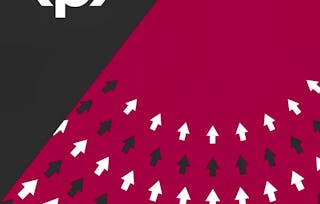In this course, we look at Cloud, DevOps and the Linux operating system. The course material is a good for anyone preparing for the Linux Foundation Certified IT Associate (LFCA) exam or just interested in learning more about Linux. This course is the fourth course in a series that aims to prepare you for working as an information technology professional.

Linux Cloud and DevOps

Linux Cloud and DevOps
This course is part of Learning Linux for LFCA Certification Specialization

Instructor: Aspen Olmsted
8,188 already enrolled
Included with
159 reviews
Skills you'll gain
Details to know

Add to your LinkedIn profile
18 assignments
See how employees at top companies are mastering in-demand skills

Build your subject-matter expertise
- Learn new concepts from industry experts
- Gain a foundational understanding of a subject or tool
- Develop job-relevant skills with hands-on projects
- Earn a shareable career certificate

There are 4 modules in this course
In this module, we look at different cloud computing models. We start with a look at Software-as-a-Service. Next, we move on to Infrastructure-as-a-Service and think about the rule of Linux in all the IAAS services available. Lastly, we look at Platform-as-a-Service and how Linux can play a crucial role in future PAAS offerings.
What's included
3 videos3 readings4 assignments1 discussion prompt
In this module, we look at how to virtualize guest operating systems running under a Linux host operating system. We will differentiate different types of hypervisors used for the virtualization process. Next, we will look at managing virtual machines running in a host Linux system, bootstrapping new installations and finally we will consider how to virtualize the network connections.
What's included
4 videos4 readings5 assignments1 discussion prompt
In this module, we look at how we can manage versions of source control in the cloud using the Git version control system. We will talk about version control at an abstract level and then drill into the details on how to commit source code to a Git repository and then follow up with how to merge different versions in Git.
What's included
4 videos3 readings4 assignments1 discussion prompt1 ungraded lab
In this module, we look at DevOps and the use of Linux and the cloud. We will think about containers and how we can orchestrate their configuration to replicate environments for the testing and deployment of software.
What's included
4 videos4 readings5 assignments1 discussion prompt
Earn a career certificate
Add this credential to your LinkedIn profile, resume, or CV. Share it on social media and in your performance review.
Instructor

Offered by
Explore more from Software Development
Why people choose Coursera for their career

Felipe M.

Jennifer J.

Larry W.

Chaitanya A.
Learner reviews
- 5 stars
66.03%
- 4 stars
20.12%
- 3 stars
7.54%
- 2 stars
3.14%
- 1 star
3.14%
Showing 3 of 159
Reviewed on Oct 21, 2023
Comprehensive course that effectively blends Linux system administration, cloud computing, and DevOps practices.😇
Reviewed on Apr 24, 2025
It was very great and helpful to follow this course thanks for your good content providing
Reviewed on Apr 17, 2022
Good but I don't like pretty much the way videos were done (sometimes just feels like teacher is just reading). Anyways good content. Hope I can get my LFCA succesfully.

Open new doors with Coursera Plus
Unlimited access to 10,000+ world-class courses, hands-on projects, and job-ready certificate programs - all included in your subscription
Advance your career with an online degree
Earn a degree from world-class universities - 100% online
Join over 3,400 global companies that choose Coursera for Business
Upskill your employees to excel in the digital economy
Frequently asked questions
To access the course materials, assignments and to earn a Certificate, you will need to purchase the Certificate experience when you enroll in a course. You can try a Free Trial instead, or apply for Financial Aid. The course may offer 'Full Course, No Certificate' instead. This option lets you see all course materials, submit required assessments, and get a final grade. This also means that you will not be able to purchase a Certificate experience.
When you enroll in the course, you get access to all of the courses in the Specialization, and you earn a certificate when you complete the work. Your electronic Certificate will be added to your Accomplishments page - from there, you can print your Certificate or add it to your LinkedIn profile.
Yes. In select learning programs, you can apply for financial aid or a scholarship if you can’t afford the enrollment fee. If fin aid or scholarship is available for your learning program selection, you’ll find a link to apply on the description page.
More questions
Financial aid available,





